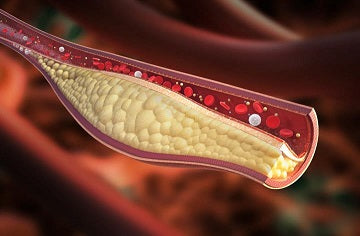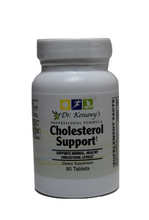
According to the CDC, Nearly 1 in 3 American adults has high cholesterol. Too much cholesterol puts you at risk for heart disease and stroke, two leading causes of death in the United States.
Notably, there is “good” and “bad” cholesterol. Blood cholesterol is a waxy, fat-like substance made by your liver. Blood cholesterol is essential for good health. Your body needs it to perform important jobs, such as making hormones and digesting fatty foods. Your body makes all the blood cholesterol it needs, which is why experts recommend that people eat as little dietary cholesterol as possible while on a healthy eating plan.
Dietary cholesterol is found in animal foods, including meat, seafood, poultry, eggs, and dairy products. Strong evidence shows that eating patterns that include less dietary cholesterol are associated with reduced risk of cardiovascular disease, but your overall risk depends on many factors including but not limited to:
Certain health conditions can increase your risk for high cholesterol
- Type 2 diabetes lowers high-density lipoprotein (HDL, or “good”) cholesterol levels and raises low-density lipoprotein (LDL, or “bad”) cholesterol levels. This combination raises your risk of heart disease and stroke
- Obesity is linked to higher triglyceride levels, higher LDL cholesterol levels, and lower HDL cholesterol levels. Obesity can also lead to heart disease, high blood pressure, and diabetes.
Your lifestyle choices can increase your risk for high cholesterol.
- Eating a diet high in saturated fat and trans fat may contribute to high cholesterol and related conditions, such as heart disease.
- Not getting enough physical activity can make you gain weight, which can lead to high cholesterol.
- Smoking damages your blood vessels, making them more likely to collect fatty deposits. Smoking may also lower high-density lipoprotein (HDL, or “good”) cholesterol levels. If you don’t smoke, don’t start. If you do smoke, learn more about tobacco use and ways to quit at CDC’s Smoking & Tobacco Use website.
Perilously, high cholesterol has no signs or symptoms, so the only way to know if you have it is to get your cholesterol checked.

Dr. Kenawy’s Cholesterol Support is a synergistic combination of vitamins, minerals, herbs and other nutraceuticals designed to help support normal, healthy cholesterol levels.† We use several patented and trademarked ingredients as these ingredients typically have a significant amount of scientific studies to support their efficacy and safety.†
†Features:
- Policosanol Plus® - is a patented form of policosanol derived from rice bran wax.
- Corowise® - brand of plant sterols has been clinically studied in individuals with elevated cholesterol.
- Soylife® isoflavones - have been studied for its ability to help support healthy cholesterol levels.†
- Pantesin® - brand of pantethine has been shown to support cholesterol metabolism.†
- ChromeMate® - brand chromium consists of chromium bound to niacin, two nutrients essential for cholesterol and fat metabolism.†
- Folic acid, B12 and B6 for added support.†
- Tocotrienols are a form of vitamin E that helps support cholesterol metabolism.†
- Phosphatidylcholine, oat bran, garlic, grape seed extract and artichoke are added for their synergistic effects.
†Benefits:
- Policosanol Plus® helps support healthy cholesterol levels. Although, the exact mechanism of how it works is not known, it is believed to affect cholesterol synthesis in the liver.†
- Corowise® plant sterols share a similar chemical structure to cholesterol and therefore help compete with cholesterol for intestinal absorption. This results in less cholesterol getting into the blood.†
- Tocotrienols are believed to support normal, healthy cholesterol synthesis in the liver.†
- Vitamins B-6, B-12, and folic acid help promote cardiovascular health by supporting normal, healthy levels of homocysteine in the blood.†
- Niacin, pantethine and chromium are added for their ability to help promote cardiovascular health by promoting normal, healthy cholesterol and fat metabolism.†
†These statements have not been evaluated by The Food and Drug Administration. This product is not intended to diagnose, treat, cure or prevent any disease. Information and statements made are for education purposes and are not intended to replace the advice of your General Practitioner. If you have a severe medical condition or health concern, see your physician.




